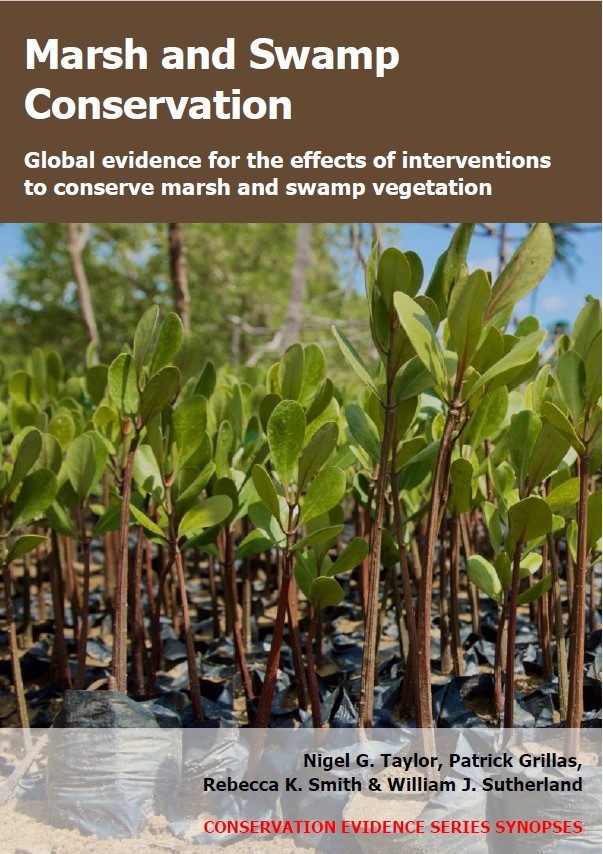Lobby/campaign/demonstrate to protect marshes or swamps
-
Overall effectiveness category Unknown effectiveness (limited evidence)
-
Number of studies: 1
View assessment score
Hide assessment score
How is the evidence assessed?
-
Effectiveness
50% -
Certainty
28% -
Harms
0%
Study locations
Supporting evidence from individual studies
A study in 2008 of a wetland complex in northwest Brazil (Sellamuttu et al. 2008) reported that following lobbying of national and local governments in the 1990s, the area was designated as a sustainable development reserve (in 1996) and a new research institute for sustainable development was created (in 1999). The sustainable development reserve designation, which allowed sustainable use of resources by local and indigenous people, was a relaxation of former strict protection. Methods: The Mamirauá wetlands are a complex of seasonally flooded forest, rivers and lakes. In the early 1990s, they were strictly protected but were faced with pressure from commercial loggers and hunters. From 1992, a conservation group lobbied the Brazilian Government to allow sustainable use of the wetlands by local people. This lobbying was backed by biological and socioeconomic studies, and supported by national and international media campaigns. The conservation group leader also personally lobbied the State Governor, with arguments about political benefits of allowing sustainable use.
Study and other actions tested
Where has this evidence come from?
List of journals searched by synopsis
All the journals searched for all synopses
This Action forms part of the Action Synopsis:
Marsh and Swamp Conservation
Marsh and Swamp Conservation - Published 2021
Marsh and Swamp Synopsis





)_2023.JPG)














